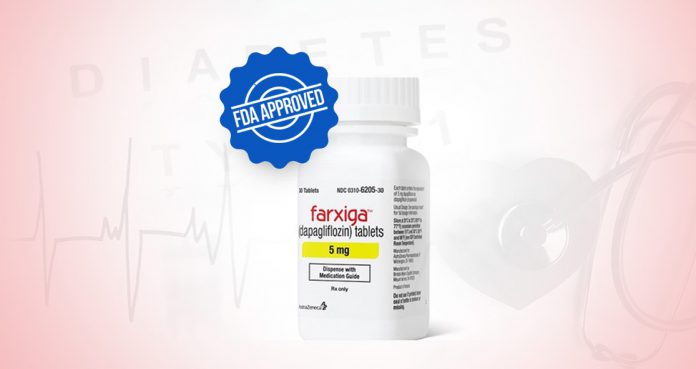On Monday, AstraZeneca announced that the U.S. Food and Drug Administration (FDA) has been approved its diabetes drug Farxiga (dapagliflozin) for reducing the risk of heart failure in adults with type 2 diabetes as well as other cardiovascular risks.
The English-Swedish pharmaceutical company said the FDA approved the drug after considering the DECLARE-TIMI 58 clinical trial, which was also considered by the European officials in August.
The agency granted Fast Track designation for Farxiga to lower the risk of cardiovascular death in patients with heart failure and reduced ejection fraction (HFrEF) or preserved ejection fraction (HFpEF).
Containing dapagliflozin as an active drug, Farxiga is the first drug to be approvedfor this kind of indication in the United States, according to Ruud Dobber, the executive vice president and president of BioPharmaceuticals Business Unit at AstraZeneca.
Dobber said, “This is promising news for the 30 million people living with type-2 diabetes in the United States, as heart failure is one of the earliest cardiovascular complications for them, before heart attack or stroke.”
Already approved for the treatment of type 2 diabetes, Farxiga belongs to the class of anti-diabetes drug SGLT2-inhibitors that acts by allowing the kidney to eliminate sugar from the body via urine.
Heart disease is one of the most common complications of diabetes, increasing the risk of heart failure, which could be life-threatening.
Farxiga, which is one of the top-selling drugs of AstraZeneca, had shown promising results in lowering the risk of heart attacks and reducing the progression of heart disease in patients with a type of heart failure.





















